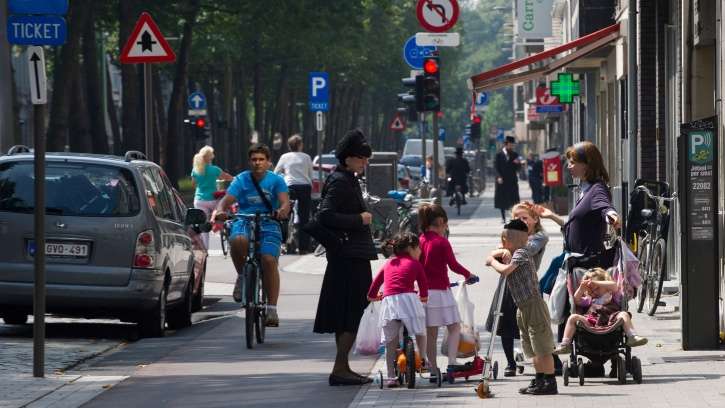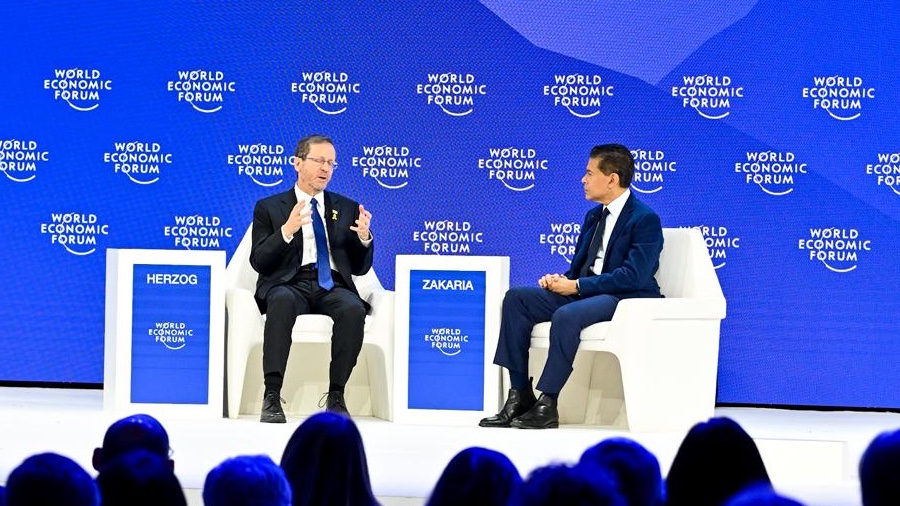The memory of the Holocaust in the digital generation and how four generations deal with the trauma was the topic of discussion at the second Israeli-European summit “Media Tel Aviv.” The conference was founded by the deputy editorial director for world affairs of the German Bayrischer Rundfunk together with Dr. Susanne Glass, and Jenny Havemann.
During the debate, Felix Klein, the government commissioner for Jewish life in Germany and the fight against antisemitism, admitted efforts to combat anti-semitism and anti-Zionism affects all areas of life and all issues handled by the government, and even art. After the Israeli flag was burned in the streets of Berlin, Klein learned that it was impossible to prosecute the arsonists simply because burning the German flag was not against the law. Klein promoted a law that prohibits the burning of national flags in general and not just the Israeli flag, in order to deal with this political behavior broadly.
After being asked about what he thought could help fight antisemitism, Klein replied that the solution is to present the life of Jews in Europe and to teach the rest of the European population about the history of European Judaism. To instill the understanding that if German Jews are harmed by antisemitism, they are German citizens first. He claims that Europeans need to understand that antisemitism hurts all Europeans. Today it’s Jews, tomorrow it could be any other minority group.
When EU Parliament Member Terry Newman was asked about antisemitism in the UK, he stated that during the first half of the year there were 1,400 cases of violence against Jews in the United Kingdom. Newman explained that it’s easier to express racism towards Jews, because there are many more ways to condemn Jews without really condemning them.
Since the name of the Jewish state is Israel, the state religion is Judaism and its national movement is Zionism, you can use words that are equivalent to “Jews” and not be considered antisemitic in the eyes of law. “This is the antisemitism of the 21st century,” he said, comparing the method to a game where you try to hit a frog with a hammer that jumps out of a different hole each time.
See: World Leaders Agree: Anti-Zionism is Antisemitism
Haveman told Terry that many Germans ask what Israel can do against antisemitism in Europe. Newman replied that there are two narratives on the Holocaust, the Jewish and the European.
The European narrative says that the average Jewish European was persecuted in the Holocaust, but also many other Europeans who were not Jewish. In fact, the European narrative emphasizes more the persecution of Europeans than the Jewish minority for being Jewish. Jews see the Nazis’ attack on them, but the Europeans see the barbarians’ attack on European civilization. What Israel can convey to Europe is that every nation should know how to defend itself, because once in a generation an evil person will rise up to eliminate you.
EU Parliament Member Lukas Mendel said that he chose to be a part of the European Union because there are many more opportunities to fight antisemitism and also maintain the European connection with Israel. He claims that because Israel is the only democracy in the Middle East – Austria, his country, has an interest in strengthening ties with Israel and also learning from its experience in the war on terror. When asked what the European Union can do in the future to stop antisemitism, he pointed to an issue that has never been properly addressed – conspiracy theories. He claimed that antisemitism is related to conspiracy theories about Jews and that many of these are spread on social media. The solution is to refute them instead of letting them spread.
Leonard Kaminsky, one of the moderators, spoke about antisemitism in Germany and shared that there is no Jew living in Germany that does not feel antisemitism on a regular basis – the Jews in Germany are already used to this reality. He went on to say that it’s difficult to fight antisemitism in Germany when 20% of German citizens hold antisemitic views. Kaminsky claimed that attacking Jews includes attacking other minorities and democracy itself, since antisemitic people usually hate other minorities and oppose the values of democracy.
Biff Kugelman, the EU Parliament Member from Switzerland, said that the difference between antisemitism in Germany and antisemitism in Switzerland is that in Switzerland, the phenomenon is more underground. In Switzerland, 28 antisemitic statements were recorded last year, so it’s impossible to compare what’s happening there with other European nations.
When Jenny Haveman admitted that she notices on the Internet every day that Jewish accounts are reported in order to silence them and remove their voices from social media, Biff answered her that the Internet is no longer safe from antisemitism. He added that social networks tend to turn a blind eye and do not fully comply with the law when it comes to inappropriate discourse.
In Terry Newman’s opinion, it is impossible to blame only the social networks because in European law there is no clear limit to what is considered antisemitism. Only when the European Union defines what is antisemitism will it be possible to fight the phenomenon. In his opinion, the solution to the war against antisemitism is discussions and conversations between Jews and non-Jews with an emphasis on recognition between the parties and the discussion should not remain only within the Jewish community.
In conclusion, the panel discussion about online antisemitism at the second Israeli-European summit “Media Tel Aviv” reflected the situation of European Jews and their struggles against antisemitism. The panel members who shared their part of the war against antisemitism revealed a very sad situation and a reality where antisemitism is still part of the European Jews’ lives on a daily basis.














